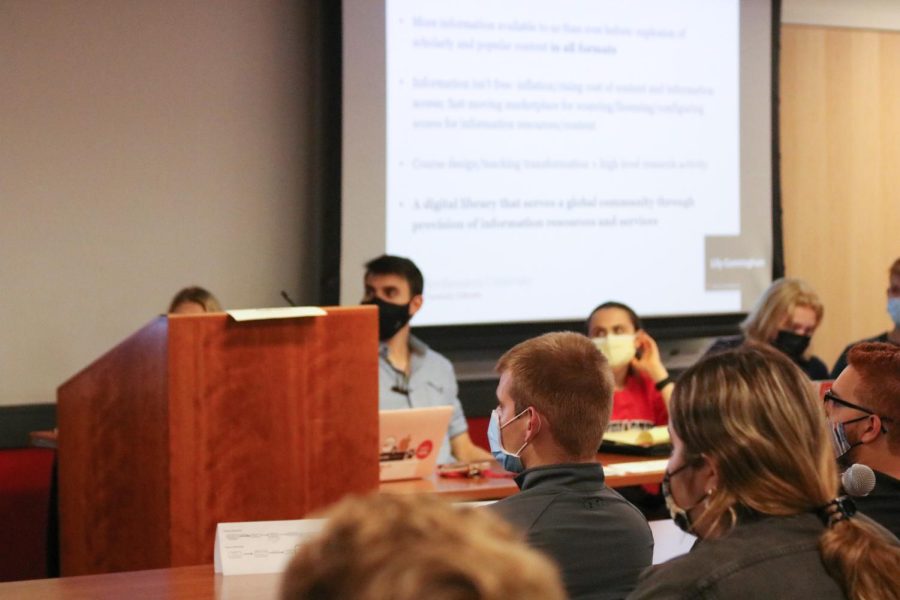SGA passes Sense of Senate regarding the changing of final exam slots
On Jan. 31, Northeastern’s SGA unanimously passed a Sense of Senate to prevent professors from changing the date of final exams after they are set by the registrar.
February 21, 2022
On Jan. 31, the Student Government Association, or SGA, unanimously passed a resolution restricting Northeastern professors’ abilities to change final exam dates from official registrar schedules. Through this, SGA is emphasizing a pre-existing policy in the Northeastern student handbook that states “individual professors and department heads understand that the finals schedule issued by the registrar’s office is the final decision and cannot schedule their finals in different time slots.”
Assistant Vice President for Student Services, and second-year political science and economics combined major, Harrison Voigt further explained what exactly this resolution entails.
“This doesn’t just apply to tests. This can apply to what we refer to in the legislation as final events,” Voigt said. “This is essentially anything mandatory that you have to be at that will affect your grade.”
Voigt explained how this solution came about — it was originally inspired by student complaints and anecdotes shared with SGA. In previous semesters, last minute changes in final exam time slots added extra stress for students and created scheduling conflicts.
“Frankly, when we discussed it with a college administrator, they acknowledged that it’s been a problem for years,” Voigt said. “But it’s been really hard for them to enforce because usually the complaint comes after it’s already happened.”
It is important to note that this specific resolution was not legislation, but rather a Sense of the Senate. The latter acts as a ‘survey’ to gauge the interest of senators and the student government. Unlike legislation, once a Sense of the Senate is passed, it’s not given to President Joseph E. Aoun or the Provost’s Office. Instead, it affirms a topic the students are currently prioritizing and encourages administration to take action.
Alex Arenas, vice president for academic affairs and third-year business administration major, discussed how it was useful in this case.
“We created the Sense of the Senate in order to gauge interest in trying to correct this problem and then through the College Expectations [sub-committee], we made liasonships between all the colleges to try to correct this problem,” Arenas said.
As Arenas mentioned, now that the Sense of Senate has been passed, it is the College Expectations sub-committee’s responsibility to communicate and resolve this with all the colleges at Northeastern. Relationships among individual colleges are crucial for policies to be tailored appropriate to each faculty group’s needs.
Pooja Srinivasan, a first-year behavioral neuroscience major and assistant vice president for academic affairs, also commented on this dynamic.
“Our College Expectations liaisons are working with the deans, or associates deans/point person, within each college’s dean’s office to address this issue and make it more transparent,” Srinivasan said. “A lot of the colleges are very aware that this is an issue and, on their end, are pushing for everything that they can to let professors know that they can’t do this.”
The challenge with this particular policy, however, is taking preventive measures before the problem arises.
“I don’t think it’s necessarily mal intent on professors,” Voigt said. “I think it’s just a gap in how we execute the policy from the registrar’s office and then the colleges. It’s sort of a hard one in that you can’t get mad at a professor before it happens.”
Nevertheless, by passing this Sense of Senate, SGA is hoping to add some weight behind this issue and bring light to a student’s right to non-conflicting and stable final exam schedules.


















